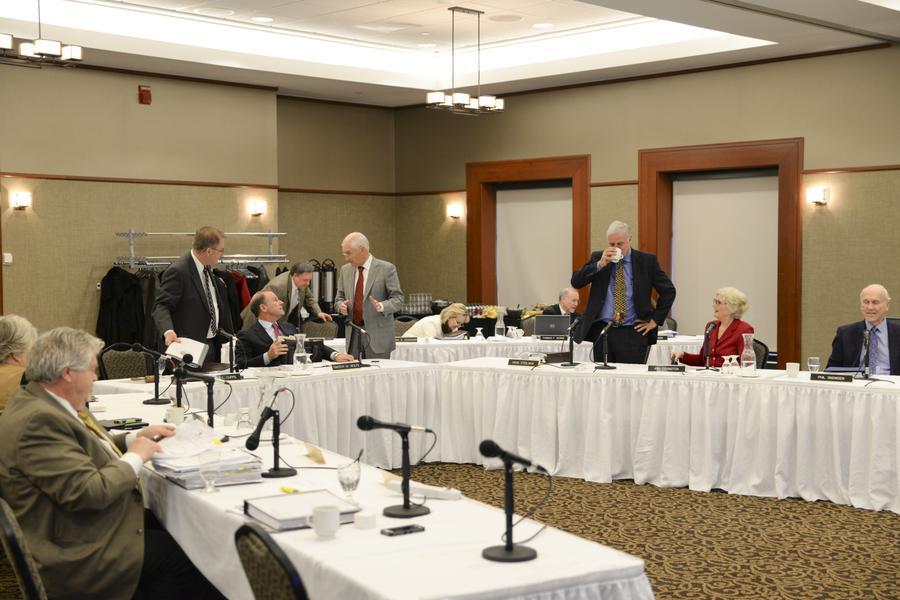
Board of Curators Chairman Don Cupps’ focus for the Friday meeting of the board was on the “year of the student” theme for 2015.
His report to the board touched on five issues affecting students throughout the UM System: advising, quality of instruction, graduating on time, mental health and campus safety.
####Mental health support
Cupps said society doesn’t do a good job talking about mental health, and recognized that college students frequently have mental health crises.
He said student representative Tracy Mulderig researched how long it takes students to have access to a mental health counselor and found that it can take up to three weeks.
“Lack of access to mental health resources for our students should never happen,” he said. “We need to identify all the impediments we have to access, diagnosis and treatment of our students.”
Cupps said Mulderig introduced him to the concept of mental health first aid, which is similar to physical first aid but deals with mental health issues. He called on the UM System chancellors to investigate the feasibility of getting mental health first aid providers in all campus residential buildings.
“At a very low cost, we could get mental health first aid to students,” he said. “We might avoid a suicide or get the student help in time that they can get back on track to complete their education.”
####Graduating on time
Ensuring that students can graduate on time should be a priority for administrators, Cupps said, because an extra semester in school would mean an increase in tuition and fees for students and lost opportunity of employment.
“People joke about the five-year plan, but for a lot of families it’s not a joking matter,” he said. “We should make sure that we provide the opportunity for every student to graduate in eight semesters.”
Cupps asked the chancellors to report a description of issues that prevent their students from graduating in eight semesters by the curators’ June meeting.
“If a student is out for a semester or a year, they should be able to come back, get on track and receive a bachelor’s degree in eight semesters,” he said.
####Quality of advising and education
Cupps began by emphasizing the importance of high-quality academic advising for students, and said various types of advising are required across various schools and departments.
“There are times when students don’t get the proper advice, and that should never happen in our system,” he said. “When the student follows the advice of the adviser and the professionals helping them, they should be successful.”
Cupps also highlighted the need for hiring well-qualified faculty members who are good teachers, and said plans should be developed to help those who could improve their teaching skills.
“We need to make sure they are skilled teachers and we need to evaluate their teaching ability in the classrooms,” he said.
Cupps asked the chancellors to draft a report with ideas for improving advising and instruction, as well as what the campuses need to be successful.
####Campus safety
Cupps said the system has taken many steps to improve campus safety, but could still do more.
Cupps stressed the importance of every student having access to a smartphone to use as a resource for campus safety. He said all students should have an application where they can get information on confidential counseling and how to report violence, assault or a dangerous situation.
####President’s report
In his report to the board, UM System President Tim Wolfe said there are three main strategies to move the UM System from good to great: leadership, creativity and having resources to invest in priorities.
Wolfe emphasized the importance of serving all 6 million Missourians and partnering with them, especially citizens, businesses and political leaders. He specifically discussed the importance of state funding for higher education, with data showing that Missouri ranks 44th in state funding for higher education funding per student.
“We have to get the message of value out to all Missourians,” he said.
Wolfe said there has to be a positive sense of urgency to move forward and create change.
“We have to stop looking at the rearview mirror and look at the windshield,” he said. “We’re changing people’s lives in a positive way, and it should inspire us all to focus on that.”